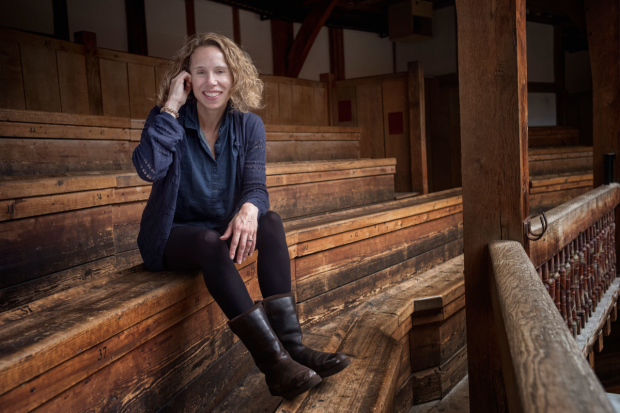Shakespeare’s Globe’s artistic director releases statement over decision to give Joan of Arc they/them pronouns

© Sarah Lee
Shakespeare’s Globe’s artistic director Michelle Terry has released a statement over the use of the character of Joan (based on Joan of Arc) using they/them pronouns in their upcoming production of I, Joan.
Discussing the new play, based on the famous French character who was torched alive by the English, Terry stressed that “Shakespeare did not write historically accurate plays. He took figures of the past to ask questions about the world around him. Our writers of today are doing no different, whether that’s looking at Ann Boleyn, Nell Gwynn, Emilia Bassano, Edward II, or Joan of Arc.”
She continued: “It was no accident that Shakespeare moved his playhouse beyond the jurisdiction of the London City Walls. He wanted to play. Play with identity, power, with the idea of pleasure, and with all sides of an argument. Shakespeare was not afraid to ask difficult questions as he imagined the lives of 1,223 characters; he represented an extraordinary range of diverse perspectives and identities, and we are all still enjoying his work over 400 years later. Shakespeare was not afraid of discomfort, and neither is the Globe.
“For centuries, Joan has been a cultural icon portrayed in countless plays, books, films, etc. History has provided countless and wonderful examples of Joan portrayed as a woman. This production is simply offering the possibility of another point of view. That is the role of theatre: to simply ask the question ‘imagine if?’.”
The production has, since it was first announced, been billed as “alive, queer, and full of hope”, with Terry stating that “we recognise the complex history of the word queer, and its reclamation into a positive or neutral descriptor. We use queer to mean those outside of heterosexual and cisgender identities.”
Charlie Josephine’s new play begins performances later this month, with the part of Joan being played by Isobel Thom, who graduated from Royal Welsh College of Music and Drama this year.
Terry recognised that, even though shows at the Globe (or any of Shakespeare’s plays) are not grounded in historical fact, “Regarding the use of pronouns, ‘they’ to refer to a singular person has been traced by the Oxford English Dictionary to as early as 1375, years before Joan was even born.”
“Shakespeare’s Globe is unequivocally pro-human rights. This includes trans people, non-binary people, black and minority ethnic people, and people with disabilities. Trans men and women and non-binary identities exist and are valid. We stand by the United Nations Universal Declaration of Human Rights.
“We are committed to becoming an inclusive and diverse organisation, and making necessary change is at the heart of our strategic aims for the organisation. This includes becoming pro-trans, anti-racist, and taking positive, conscious, and intentional action against any form of prejudice present in our culture.”
One line stands out from her message: “We are not the first to present Joan in this way, and we will not be the last.”












